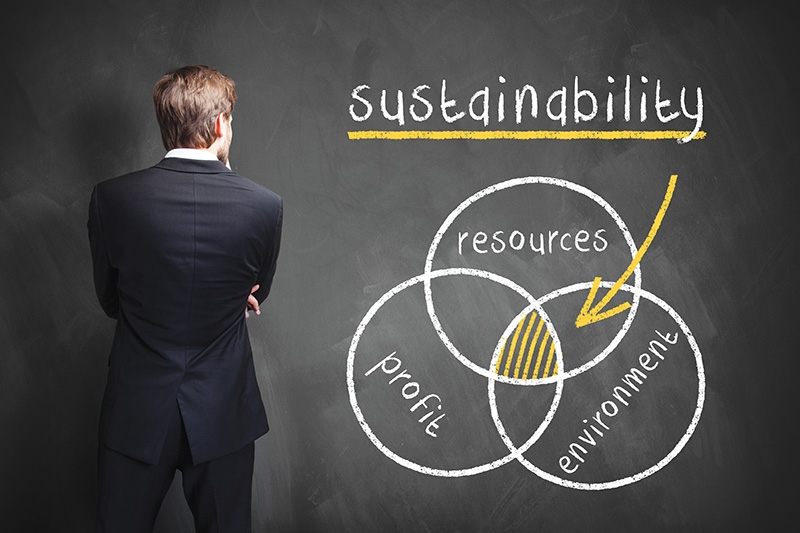UNDP urges better business practices
 |
| Businesses in Vietnam need to go beyond the bare minimum laid out in regulations. Photo: Shutterstock |
At last week’s launch of a study on corporate awareness and implementation of responsible business practices (RBP) in Vietnam by the United Nations Development Programme (UNDP) and the Embassy of Sweden in Vietnam, research team leader Vu Van Tuan said that the concept of corporate social responsibility is trending towards RBP.
RBP means actively assessing business impact on environment and society, and taking measures to prevent and address adverse impacts, and providing effective remedies when negative impacts occur, Tuan said. This includes going beyond compliance with national laws where necessary to align with international standards such as those of the International Labour Organization and others.
UNDP deputy resident representative Sitara Syed highlighted the timeliness of the study. “The study is critical at this moment. Though Vietnam’s rapid, yet relatively inclusive economic growth and an influx of investment have brought opportunities, they have also contributed significantly to environmental degradation and corporate-related human rights breaches,” she said.
Under the study, in which over 2,000 samples were sent out from August to December 2020, understanding of RBP varies among business enterprises. Specifically, 81 per cent of state-owned enterprises (SOEs) had the highest rate of full understanding about RBP, and 47 per cent of local private enterprises have the lowest rate of full understanding. The rate among foreign-invested enterprises (FIEs) sits at 69 per cent.
The study – the first in Vietnam – focuses on labour, environmental, and governance issues, with the data being collected through focus group discussions, key informant interviews, and a survey with 279 respondents. Enterprises involved were from the agro-forestry-fishery, manufacturing and construction, and trade and services economic sectors.
In regard to RBP in labour issues, local private enterprises have the lowest level of implementation, while small enterprises have the lowest. In an environmental aspect, the compliance rate (55-64 per cent) of activities with direct impacts on the environment, such as waste treatment and hazard prevention, is the highest among studied practices.
Meanwhile, the highest level of RBP implementation overall is in wastewater treatment, with the lowest level in climate change response. SOEs have the highest level of RBP implementation, and local private enterprises and FIEs have a relatively similar level of implementation.
In terms of governance issues, large enterprises have a much higher rate of application of international practice than small- and medium-sized enterprises (19 per cent compared to 3 and 5 per cent, respectively). The rate for applying international standards among FIEs almost doubles that of SOEs and local private enterprises (14 per cent compared to 8 per cent each).
Responsible business is a global trend with increasing implications for Vietnam. As a result, the two recent progressive free trade agreements of the EU-Vietnam deal and the Comprehensive and Progressive Agreement for Trans-Pacific Partnership have provisions on trade and sustainable development, as well as labour and the environment.
While the Vietnamese regulatory framework on RBP is deemed quite strong, there are still gaps where alignment with international standards is needed. But good signal of RBP implementation for the future have merged. Some 60 per cent of enterprises have a plan for RBP adoption, and over two-thirds of large enterprises, SOEs, and groups in agro-forestry-fishery said that they would adopt it in the future.
Syed told VIR, “Globally from what we know, the movement for responsible business is gaining strength in Asia and the Pacific and this is a very good signal.” She added, “Other countries like Malaysia, Singapore and Thailand are ahead in RBP compared to Vietnam, but Vietnam can catch up. I think there is a lot of willingness among consumers and many businesses to apply RBP, as indicated by 60 per cent of the responded businesses, and there is strong commitment from the government.”
According to the research team, the leading role of the government in driving responsible business is recognised, with the National Action Plan ranked highest, and it was stressed that to ensure higher implementation, greater external and internal pressure is needed.
What the stars mean:
★ Poor ★ ★ Promising ★★★ Good ★★★★ Very good ★★★★★ Exceptional
Related Contents
Latest News
More News
- Foreign leaders extend congratulations to Party General Secretary To Lam (January 25, 2026 | 10:01)
- 14th National Party Congress wraps up with success (January 25, 2026 | 09:49)
- Congratulations from VFF Central Committee's int’l partners to 14th National Party Congress (January 25, 2026 | 09:46)
- 14th Party Central Committee unanimously elects To Lam as General Secretary (January 23, 2026 | 16:22)
- Worldwide congratulations underscore confidence in Vietnam’s 14th Party Congress (January 23, 2026 | 09:02)
- Political parties, organisations, int’l friends send congratulations to 14th National Party Congress (January 22, 2026 | 09:33)
- Press release on second working day of 14th National Party Congress (January 22, 2026 | 09:19)
- 14th National Party Congress: Japanese media highlight Vietnam’s growth targets (January 21, 2026 | 09:46)
- 14th National Party Congress: Driving force for Vietnam to continue renewal, innovation, breakthroughs (January 21, 2026 | 09:42)
- Vietnam remains spiritual support for progressive forces: Colombian party leader (January 21, 2026 | 08:00)

 Tag:
Tag:




















 Mobile Version
Mobile Version